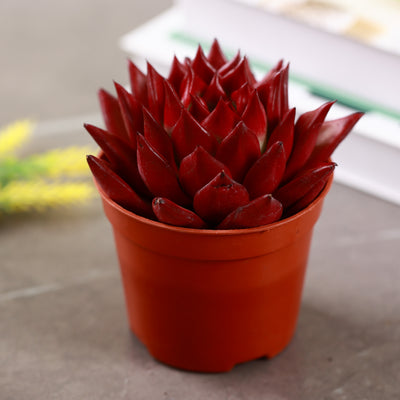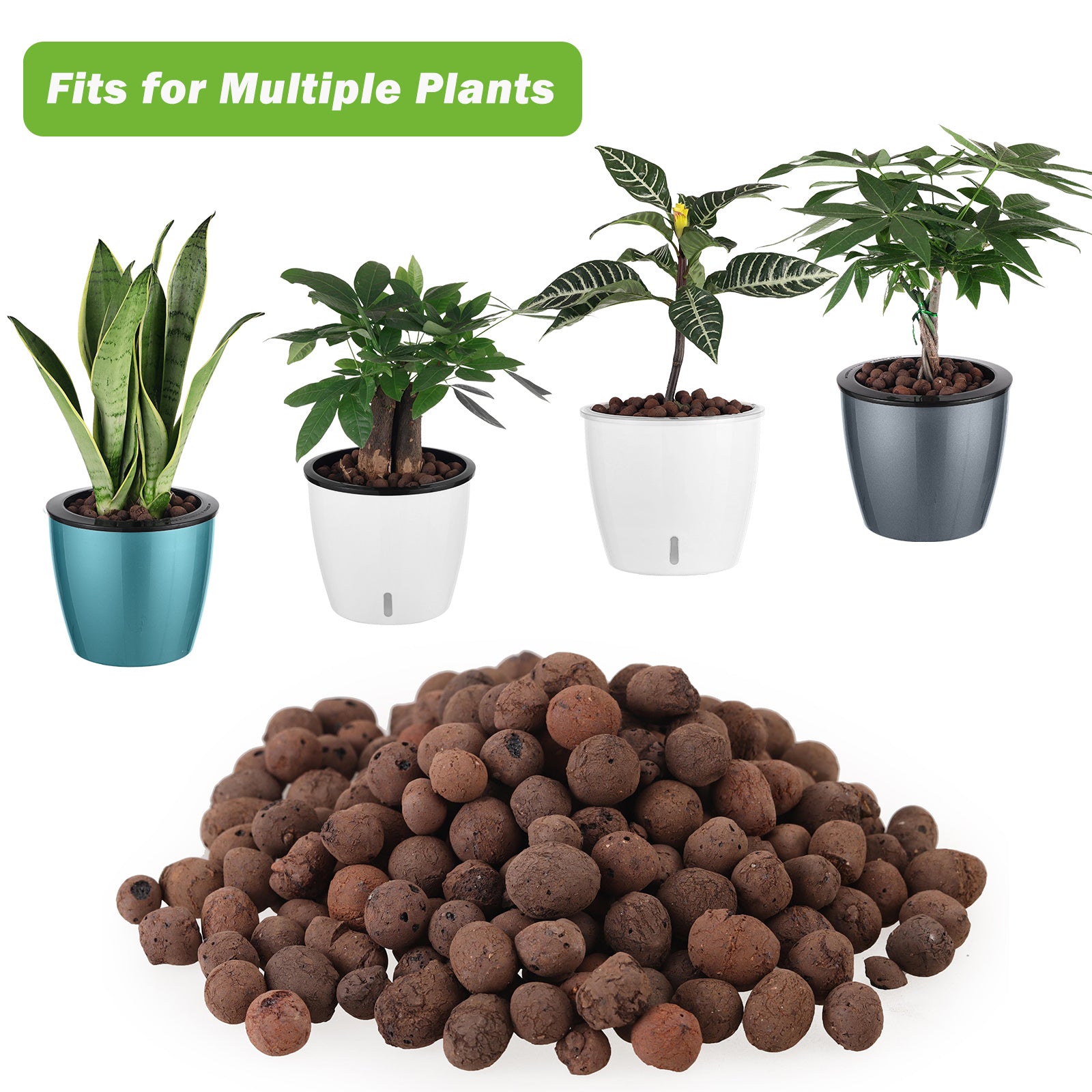How to Make Best Snake Plant Soil at Home? 2 Simple Homemade Recipe
Snake plants are one of the most resilient and easy-to-care-for houseplants around. They are native to Africa and thrive in hot, dry conditions. As a result, they are very tolerant of neglect and can go for long periods of time on less water.
One of the most important things to consider when growing snake plants is the type of soil mix you use. While snake plants are relatively tolerant of different soil types, they will thrive in a slightly acidic mix to neutral.
Snake plants thrive in well-drained soil. Good potting soil for snake plants should be light and airy and not retain water.
If you are looking for a way to make your snake plant care easier, a self-watering pot with a well-draining soil is a great option. Just be sure to choose a pot that is the right size for your plant and to monitor the water level regularly.
In this article, we will discuss the best type of soil for snake plants and how to make your own potting mix for snake plants.
Let's take a closer look at snake plant soil in detail.
The Impact of Soil on Plant Health
Soil is one of the most important factors in determining plants' health and ability to thrive. It provides the nutrients, water, and oxygen that plants need to survive and grow and can directly impact the success of a planting.

Understanding how soil affects plant health is essential for the successful growth of plants. When it comes to soil, there are four main factors that influence plant health: soil type, soil structure, soil pH, and soil fertility.
Soil type is simply the soil's physical structure, which can range from clay, loam, or sand. Different soil types can hold different amounts of water, nutrients, and oxygen and can be highly beneficial for certain plants.
Knowing the best soil type for the plants being grown is essential for healthy growth. Soil structure is how the soil is formed, which determines how well it holds water and nutrient-rich plant materials.
Soil crumbly and has a good balance of organic material, such as compost, will produce better growth than soil with a lot of clay or sand. pH is a measurement of the soil's acidity or pH balance, which can have an effect on certain plants. Most plants prefer slightly acidic soil, while others may require more alkaline soil.
Knowing the optimal pH range for the plants being grown is essential for good growth. It would help if you used a soil mix with a slightly acidic or alkaline pH of 5.5-7.5 for snake plants.
Finally, soil fertility measures the number of nutrients available in the soil to be taken up by plants. Nutrient-rich soil is great for producing healthy plants, while soil with low fertility often results in poor growth and low yields.
Adding compost, manure, or fertilizer can be a great way to improve soil fertility. Healthy soil should be rich in nutrients, have adequate drainage, and contain good organic matter. It is so important to ensure your soil is regularly tested and amended if necessary.
Best Soil For Snake Plant
If you cant make your own snake plant potting mix at home you can try our recommended soils here are our recommendation for the best soils.
Our First choice is Miracle-Gro Succulent Potting Mix, This soil is specifically formulated for plants that require excellent drainage. It usually consists of a blend of regular potting soil, coarse sand, and perlite or pumice to ensure good airflow and water drainage.
The 2nd best soil for snake plant would be Perfect Plants Organic Snake Plant Soil it is a coco coir based soil, Coco coir has a naturally high drainage capacity, allowing excess water to flow freely through the soil. This helps prevent waterlogging and ensures that the snake plant's roots do not sit in overly wet conditions.
Read More:
How to Make Your Own Snake Plant Soil?
Making your soil for your snake plant can be a great way to ensure that it is well taken care of and grows healthy. If you want to keep your Snake Plant healthy and happy, you must ensure that you take care for it and provide it with the right soil. Read More how to take care of snake plant?

If you’ve been thinking about making your own soil but don’t know where to start, you’ve come to the right place.
Here’s a guide on how to make your snake plant soil.
Recipe for snake plant soil mix.
It is very easy to make snake plant potting soil. It is possible to measure proportions in any container, such as a bucket or measuring cup, but make sure you use the same measurement for all the components to ensure consistency.
Both soil mixes are suitable for sansevieria plants.
Recipe:1
- You need 3/4 organic potting soil.
- You need 1/4-part succulent soil mix.
- An equal amount of compost.
Creating this soil mix is pretty simple; all you need to do is mix organic potting soil with succulent soil mix and add compost to boost nutrients.
Compost shouldn't be added in high quantities as too much compost can hold moisture for longer and harm your snake plant.
Recipe:2
The equipment you will need.
- A container for measuring
- A trowel or shovel is required.
- Two parts regular potting soil
- One-part coarse sand
- One part perlite or pumice
- One part coco coir or peat moss
The coco coir (or peat moss) and soil should be mixed thoroughly with a hand trowel or shovel in a bucket or tray.
After adding the coarse sand and perlite (or pumice), stir everything together once again to ensure that everything is well-mixed. Once your soil mix is ready, fill the pot with the mix and plant your snake plant.
Making your soil for your snake plant is a great way to make sure that it is properly taken care of and grows healthy. So, get to it and make the soil for your snake plant.
Symptoms of a Snake Plant in the Wrong Soil
When it comes to caring for snake plants, a good soil mix is essential. Snake plants, also known as Sansevieria trifasciata, are tough and undemanding regarding their soil needs, but the wrong soil mix can cause serious issues with your plant's health.
Read More: Can Snake Plants Live Outside?

Here are some signs that you are using the wrong soil for your snake plant.
Slower Growth
Snake plants typically grow quickly, especially in the proper soil mix. If your snake plant isn’t growing as quickly as it should, it could be due to the soil mix you’re using. Using a soil mix that is light and well-draining, like the leca balls, will help to ensure a healthy plant.

Roots Are Getting Too Wet
Snake plants prefer soil that drains well and won’t stay soggy for too long. If you notice that your snake plant’s roots are getting too wet, it’s a sign that you’re using the wrong soil mix. Make sure to check the ingredients of your soil mix to ensure it drains well. You can also add extra perlite or pumice to help with drainage.
Pale Leaves
Snake plants have glossy, deep green leaves. If your plant’s leaves look pale or yellow, it could be because of the soil mix. If the soil mix is too dense and not draining quickly enough, then the plant isn’t getting the right amount of oxygen. This can cause the leaves to look pale or yellow.
Wilting Leaves
If the soil mix is too dense and not draining properly, the snake plant’s leaves can become wilted or droopy. This is because the soil is holding too much moisture, and the plant cannot get the oxygen it needs.
If you notice your snake plant’s leaves wilting, it’s time to switch up the soil mix. Choosing the right soil mix for your snake plant is key to ensuring it thrives and grows.
If you’ve noticed any of these signs, it’s time to switch up the soil mix and give your plant the best chance for success. When you are confused about choosing the right soil for your snake plant, you can use leca balls.
Leca balls are a type of expanded clay that is often used in hydroponic gardening. They are perfect for snake plants because they are lightweight, drain well, and provide good aeration. They also help to reduce compaction and prevent root rot.
Overall, leca balls are an excellent choice for the soil of your snake plant, and they can help to keep your plant healthy and thriving. They provide the perfect balance of drainage and aeration while still being lightweight.
Planterhoma offers a wide range of high-quality LECA balls at a very reasonable price.
It is important to remember that environmental factors may also cause these symptoms. Other problems may include overwatering or underwatering, too much or too little sunlight, lack of nutrients, or low temperatures.
Final thoughts
Snake plants (Dracaena trifasciata) thrive in various soil types. The best type of soil for snake plant is light and well-draining soil, both of which help ensure adequate aeration and drainage.
This type of soil should contain a mixture of peat moss, sand, and perlite to ensure that the roots receive adequate air circulation while still providing enough moisture. Furthermore, it should be slightly acidic, with a pH level between 5.5-7.5.
Additionally, an organic soil mix rich in nutrients is also recommended, as it will help promote healthy growth. Ultimately, carefully selecting the right type of soil ensures that your snake plants grow and thrive.
FAQs
What is the Best Soil Mix for Snake Plants?
The best soil for snake plants is fast-draining and slightly acidic, with a pH between 5.5-7.5 potting soil. A soil mixture that contains peat moss, perlite, and vermiculite is ideal.
The soil should also be loose and airy, allowing for good drainage and oxygenation of the plant’s roots. It is important to avoid too heavy or dense soil, as this can cause the snake plant’s roots to rot.
Can I Use Succulent Soil for Snake Plant?
Yes, you can use succulent soil for snake plants. Succulent soil is specially formulated to drain well and provide plants with excellent aeration and nutrition.
It is perfect for snake plants, which require well-drained soil to thrive. Be sure to add some organic matter, such as compost or aged manure, to the soil to provide extra nutrients.
Can I Use Regular Soil for Snake Plant?
Yes, you can use regular soil for snake plants, but it is preferable to use a potting mix specifically designed for snake plants.
*Disclosure: This post may contain affiliate links. As an Amazon Associate I earn from qualifying purchases.


















I am greatly enlightened after reading you summary on “Snake Plant” nurture and care. Thank you
Leave a comment